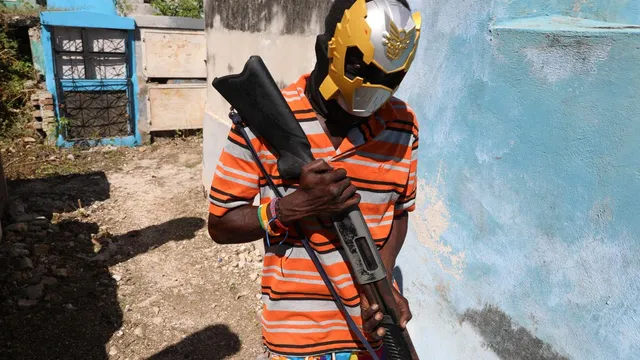
Haiti faces humanitarian crisis as internal displacement surges over 1 million
2025-01-15 16:19- Internal displacement in Haiti has increased to over 1 million due to gang violence.
- Forced returns from the Dominican Republic have intensified the humanitarian crisis.
- The situation highlights a need for international aid and intervention to support displaced individuals.
Express your sentiment!
Insights
Haiti, one of the poorest nations in the world, is facing an unprecedented humanitarian crisis as internal displacement has dramatically increased over the past year. According to the International Organization for Migration (IOM), the current number of internally displaced persons has surpassed 1 million, representing a significant jump from 315,000 in December 2023. The surge in displacement is largely attributed to relentless gang violence, particularly in the capital, Port-au-Prince, where security conditions continue to deteriorate. Alongside the violence, there has been a notable collapse in essential services such as healthcare and a worsening food insecurity situation for the population. The IOM reported that the rapid increase in displacement has also led to a rise in the number of displacement sites in Port-au-Prince—from 73 to 108—reflecting the urgency and scale of the crisis. Children now constitute more than half of the displaced population, highlighting the vulnerable demographic severely affected by the ongoing turmoil. Furthermore, the forced return of approximately 200,000 individuals, primarily from the neighboring Dominican Republic, has exacerbated the already dire humanitarian conditions. Amidst this alarming situation, the outgoing administration of U.S. President Joe Biden has taken steps to support and expand a temporary status program that allows certain foreign nationals, including those from Haiti, to remain in the United States. However, there is concern about potential policy changes under the incoming U.S. administration, which could include a rollback of protections for vulnerable migrants and the possibility of mass deportations. IOM spokesperson Kennedy Okoth expressed concerns about the detrimental impact that deportations or forced returns could have on individuals already facing extreme security and humanitarian challenges, emphasizing the need for protective measures for affected populations. The internal crisis in Haiti underscores the dire need for international attention and intervention to address the complex interplay of violence, poverty, and humanitarian needs. As the situation continues to evolve, it is crucial for local and international entities to work collaboratively to provide much-needed relief and support to those suffering in Haiti amidst this humanitarian catastrophe.
Contexts
Haiti has been grappling with a significant surge in gang violence that has profoundly impacted its population. The problem has escalated over the past few years, reaching a peak in 2023, and results in devastating consequences for the citizens, particularly in urban areas like Port-au-Prince. The escalation of gang activity is tied to a power vacuum created by political instability and weak governance, exacerbating the insecurity faced by ordinary citizens. Gangs have increasingly asserted control over neighborhoods, often resorting to violence, intimidation, and extortion, causing fear and displacing thousands of families. This vicious cycle of violence has made it difficult for residents to access basic needs such as food, healthcare, and education, leading to an overall deterioration in the quality of life for many Haitians. The humanitarian implications extend beyond immediate safety concerns. Displacement due to violence has forced many individuals and families to flee their homes, seeking refuge in overcrowded shelters that lack adequate sanitation and resources. The United Nations reported increased malnutrition rates among children, further weakened by limited access to healthcare. Educational institutions have closed or been severely disrupted, blocking a generation from receiving proper education, and thus stalling the long-term development of the nation. Furthermore, gang blockades and violence hinder the distribution of humanitarian aid, compounding the existing crises of food insecurity and health complications among the vulnerable populations. Women and children are particularly affected, often bearing the brunt of the violence. Reports indicate a rise in gender-based violence, including sexual assault, as gangs exploit their power dynamics over communities. Additionally, children are not only at risk of becoming victims but are also being recruited by gangs, losing their childhood and future opportunities. This gendered impact underlines the necessity for targeted interventions to address the unique challenges faced by these demographics, especially in a country where the social fabric has already been frayed by years of instability and natural disasters. Immediate action from both national authorities and the international community is crucial to address the multifaceted impacts of gang violence in Haiti. Comprehensive strategies must encompass immediate security measures to protect civilians, as well as long-term initiatives aiming at restoring governance, building economic opportunities, and fostering community resilience. Enhancing the capacity of law enforcement while ensuring respect for human rights is fundamental to rebuilding trust between communities and state institutions. Without a concerted effort to diminish gang influence and mitigate its impact, the prospects for recovery and stability in Haiti remain grim.